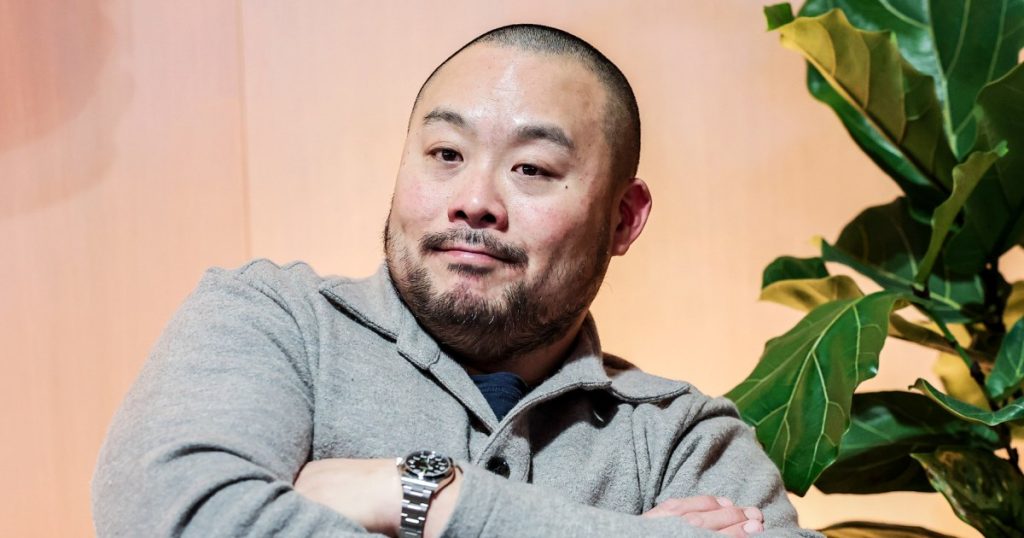Celebrity chef David Chang issued a public apology on his podcast after facing criticism for his company Momofuku attempting to trademark the term “chili crunch.” Chang and Momofuku CEO Marguerite Mariscal announced on the podcast that they would no longer be enforcing the trademark and apologized to the AAPI community for any hurt or marginalization caused by their actions. The brand had sent cease-and-desist letters to companies using the term “chili crunch” and was hoping to trademark it, but they now aim to resolve branding disputes amicably.
Chang explained that when Momofuku created its chili crunch product, the name was intentionally chosen to differentiate it from other similar products like chili crisp. However, they were not aware that the name “chili crunch” was essentially the same as chili crisp. The company had initially received a cease-and-desist letter from another company over the trademark, but instead of changing the product name, Momofuku purchased the trademark from the other company and gave them a license to continue using the name. Moving forward, Momofuku has decided not to enforce the trademark in the hopes that it becomes a generic term that no one can own.
The controversy surrounding the trademarking of “chili crunch” by Momofuku has sparked outrage among small business owners in the food industry. Several brands received cease-and-desist letters from Momofuku, which led to accusations of trademark bullying. Business owners like Stephen Coates, representing New York-based Malaysian food brand Homiah, and Eric Huang, chef and founder of Pecking House, expressed disappointment and criticized the attempt to trademark a generic cultural term. Other business owners, such as Jing Gao of Fly by Jing, emphasized the importance of fair competition and expressed disheartenment over Chang’s company allegedly targeting small minority women-founded businesses.
The attempt by Momofuku to trademark “chili crunch” has been seen as a controversial move within the food industry, with many questioning the ethics behind trademarking a generic cultural term like this. Chang, who has been known for advocating for Asian food identity, is facing backlash for this trademarking attempt. Some have called it a soulless cash grab and contradictory to his position as a representative of AAPI in the food and beverage industry. The small business owners affected by the cease-and-desist letters have expressed disappointment and sadness over the situation, highlighting the negative impact it could have on fair competition and the food industry as a whole.
As a celebrity chef, David Chang has faced controversy in the past for various reasons, including allegations of facilitating toxic work environments in his restaurants. However, the attempt to trademark “chili crunch” has brought a new wave of criticism and outrage. Many in the food industry view trademarking food products as unnecessary and harmful, especially when it comes to cultural terms that should be shared and celebrated rather than owned by one company. Moving forward, it will be interesting to see how Chang and Momofuku handle the aftermath of this controversy and whether they will take steps to rectify the situation and make amends with the community they have offended.


